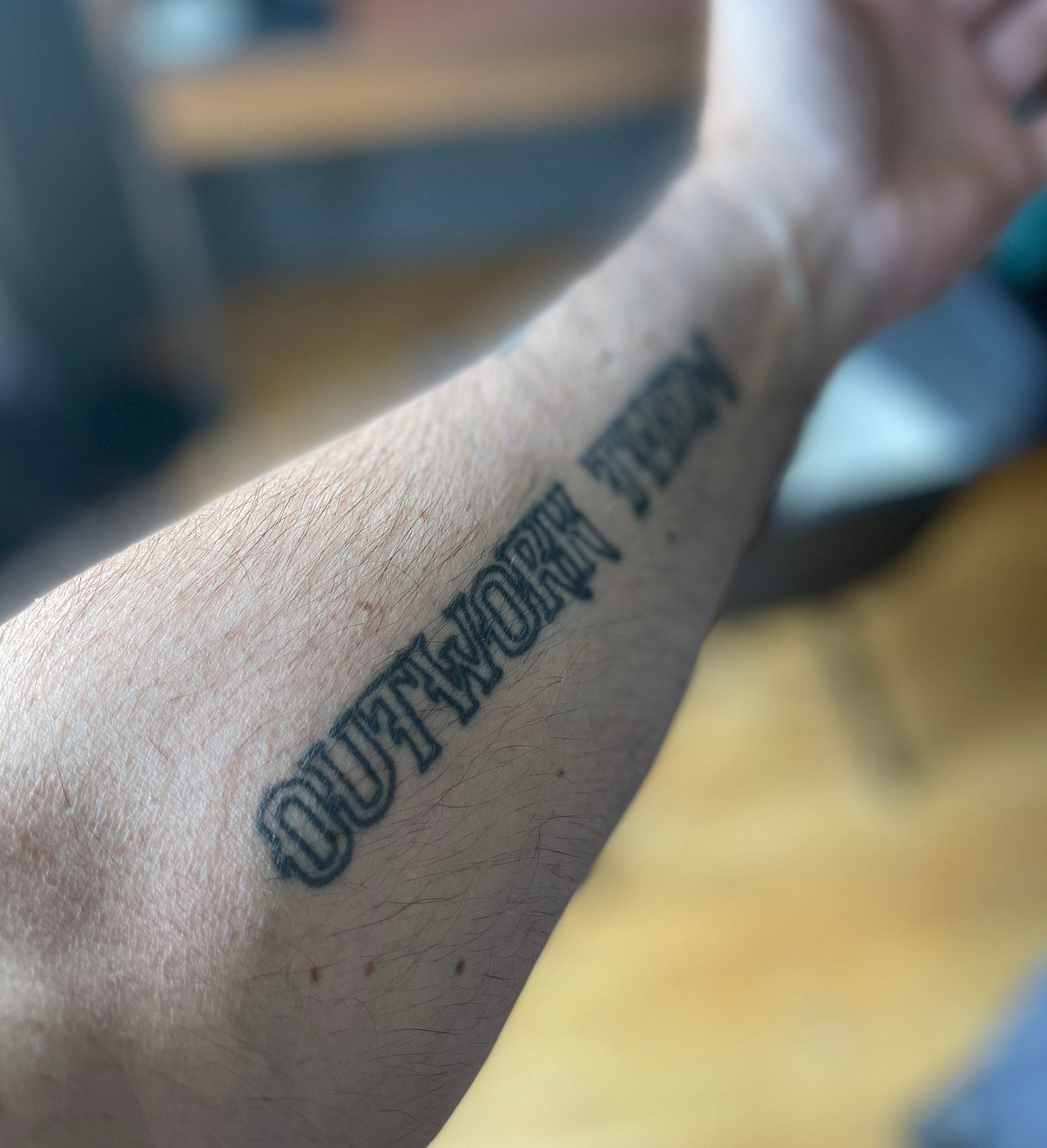Founders ➜ Burnout Is Real
A Free Burnout Self-Assessment Tool and Recommendations
I'm Manuel Saez, I write to help founders master emotional intelligence to make decisions with clarity 🌻 EQ coach, 2X-founder & award-winning designer ➜ I love fixing old motorcycles 🛵 🏍
Reading time: 7 min.
Contents:
Intro
Understanding Founder Burnout: Recognizing the Signs
The Myth of Hustle Culture: Why It's Harmful
Ten Strategies to Prevent Founder Burnout
Self-Assessment for Burnout: Know Where You Stand
Seeking Help: When to Consult Professionals
Conclusion
After 15 years in the entrepreneurial trenches, founding and nurturing two startups, I hit a wall: burnout.
It crept up on me, a silent yet relentless force driven by my unwavering belief in the 'win-at-all-costs' hustle. But here's the hard truth I learned: that glorified hustle is a myth, a dangerous one at that.
Success doesn't demand a sacrifice of your well-being.
Building a thriving company and maintaining mental health are not mutually exclusive goals.
If you're a founder feeling the weight of your venture, I want to share a revelation from my journey.
Here, I share some strategies and tools I wish I had known earlier to fend off burnout. It's time to redefine success on healthier terms.
Understanding Founder Burnout: Recognizing the Signs
Burnout sneaks up, often disguised as mere exhaustion or a bad week.
But it's more insidious, a state of emotional, physical, and mental depletion caused by prolonged stress.
As founders, we're particularly prone to it, given our high stakes, unrelenting passion, and the pressure we self-impose on ourselves.
Recognizing the signs early is crucial. Here are some common indicators:
Chronic fatigue: Not just tiredness that a good night's sleep can cure, but a deep, ongoing sense of physical and emotional exhaustion.
Detachment: This manifests as a sense of alienation from the people and the project you once felt passionate about.
Decreased performance: When burnout starts to set in, your ability to concentrate, be creative, and solve problems efficiently diminishes. This was a big one for me, and I felt guilty about it.
Negativity or cynicism: A once optimistic outlook might turn sour, tainting interactions and decision-making processes.
Health issues: Burnout can trigger or exacerbate health problems like headaches, gastrointestinal disorders, and insomnia.
In my journey, recognizing these signs was the first step towards healing. It's not about occasional stress, which is part of any founder's journey, but about ongoing patterns that hinder your ability to function and enjoy life.
The Myth of Hustle Culture: Why It's Harmful
For years, hustle culture has been glorified in the startup world.
The idea that working around the clock is not just necessary but commendable is deeply ingrained.
I even got a tattoo saying, "OUTWORK THEM" - I feel pretty silly about it now—but this mindset is not just flawed; it's dangerous.
Hustle culture promotes a few harmful myths:
"More hours equals more success": This fallacy leads us to believe that the key to success is working longer, not smarter. But in reality, it leads to diminishing returns as fatigue and burnout set in.
"Rest is for the weak": In hustle culture, rest is often seen as a luxury or a sign of laziness. Yet, it is essential for creativity, problem-solving, and overall health.
"Personal life can wait": Sacrificing personal time and relationships is often seen as a badge of honor, but this sacrifice can lead to a lack of support and isolation.
As a founder, I bought into these myths and paid the price. I worked incessant hours, skipped vacations, and ignored the warning signs of burnout.
But I learned that sustainable success comes from balance, not burnout. Productivity doesn't have to mean overwork and true success includes well-being.
Remember, building a company is a marathon, not a sprint. Rejecting the hustle culture and embracing a more balanced approach to work and life is not just beneficial; it's essential for long-term success and health.
Ten Strategies to Prevent Founder Burnout
Preventing burnout isn't just about knowing what it is; it's about proactive strategies to prevent it.
Here are ten strategies that I've learned are essential for any founder:
Set Realistic Goals: Ambition is key, but unrealistic goals can set you up for constant stress. Set achievable targets to maintain motivation without overwhelming yourself.
Establish Boundaries: Work-life balance starts with clear boundaries. Please define your work hours and stick to them. Remember, being constantly on means being less productive.
Prioritize Self-Care: Regular exercise, a healthy diet, and enough sleep are non-negotiable. They're good for your body and essential for your mental health.
Delegate and Trust Your Team: You can't do everything. Delegate tasks to your team and trust them to deliver. It reduces your workload and empowers them.
Take Breaks and Vacations: Short breaks throughout the day and regular vacations can recharge your batteries. They're not a luxury but a necessity for sustained productivity.
Cultivate a Support Network: Surround yourself with people who understand and support your journey. This can be family, friends, mentors, or peer groups.
Practice Mindfulness and Relaxation: Techniques like meditation, yoga, or just quiet reading time can significantly reduce stress.
Seek Professional Help When Needed: Don't hesitate to seek help from a therapist or coach. Sometimes, an external perspective is what you need.
Celebrate Small Wins: Focus on and celebrate small achievements. They add up and help maintain a positive outlook.
Remember Your Why: Always remind yourself why you started. This can be a powerful motivator and a north star guiding you through tough times.
As a founder, I've found that integrating these strategies into my life was pivotal in preventing burnout and achieving a more fulfilling and balanced entrepreneurial journey. Still, ultimately, it is the best for the business.
Self-Assessment for Burnout: Know Where You Stand
Understanding your own risk of burnout is a critical step in prevention. To help with this, I've developed a Free Burnout Self-Assessment Tool. This tool gives you a clearer picture of where you stand and what steps you might need to take next.
Why take the assessment?
Early Detection: The sooner you recognize the signs of burnout, the quicker you can address them.
Personal Insight: The assessment provides insights into your stressors and coping mechanisms.
Guided Action Steps: You'll receive suggestions tailored to your situation based on your assessment.
Measure Progress: Regularly taking the assessment can help track your progress in managing stress and workload.
Using the Tool Effectively
Take the assessment in a quiet, undistracted environment.
Answer honestly; this is for your benefit.
Reflect on the results and consider implementing recommended strategies.
Burnout isn't a sign of weakness; it's a sign that something needs to change. By taking this self-assessment, you're taking an essential step toward understanding and managing your well-being as a founder.
Seeking Help: When to Consult Professionals
Acknowledging when you need professional help is a sign of strength, not weakness.
As entrepreneurs, we often pride ourselves on our independence and problem-solving skills. However, some challenges, like burnout, require outside expertise.
When to Seek Professional Help:
Persistent Feelings of Overwhelm: If you consistently feel overwhelmed and unable to cope, it's time to seek help.
Physical Health Issues: Persistent health issues related to stress can be a clear sign that professional intervention is needed.
Impacted Personal Relationships: If work stress significantly affects your relationships, a therapist can help you find a better balance.
Decreased Work Performance: When burnout affects work quality and productivity, a professional can provide strategies to regain momentum.
Types of Professional Help:
Therapists or Psychologists: For dealing with stress, anxiety, and other mental health issues.
Executive Coaches: I specialize in helping founders manage their workload, stress, and career goals. I am here to help if you need me.
Support Groups: Sometimes, talking with peers in similar situations can provide comfort and practical advice.
Remember, seeking help is a proactive step towards reclaiming your well-being and ensuring the sustainability of your business venture.
Conclusion:
As we navigate the challenging but rewarding path of entrepreneurship, let's redefine the success metrics.
It's not just about financial gain or market dominance; it's about building sustainable businesses while maintaining our mental and physical health.
The strategies and tools discussed here are not just theoretical; they are born from my entrepreneurial journey's real struggles and successes.
I encourage you to take the self-assessment, reflect on your current practices, and consider incorporating these strategies into your life.
Here's to building successful businesses and living a fulfilling, balanced life as a founder.
Manuel.
Sending you good vibes 🌻
Manuel Saez 👉 manuelsaez.com






